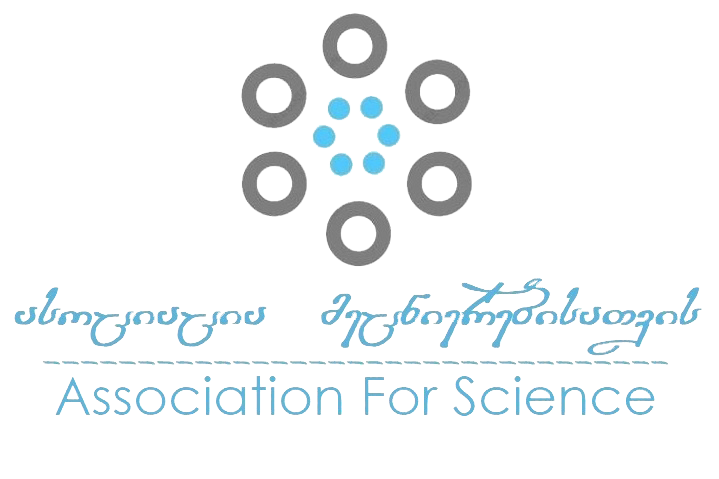Armenian Geopolitical Interests in Occupied Abkhazia
DOI:
https://doi.org/10.52340/isj.2024.28.19Abstract
Recently, the Armenian "love" for Georgia has become increasingly obsessive. The reason is clear - the Armenian authorities and the Armenian lobby are trying to get the Georgian authorities to allow the transit of goods for Armenia through the occupied Georgian territories of Abkhazia and the Tskhinvali region, where separatism was once actively supported by the Armenian lobby, and in Abkhazia, the Armenian battalion named after Baghramyan became famous for its atrocities against the peaceful Georgian population. At the same time, Armenia is not going to reconsider its position against the return of Georgian refugees to Abkhazia and the Tskhinvali region (every year Armenia votes against this at the UN General Assembly and last year it also voted). Also, the Armenian lobby does not refuse to support the separatists of Sukhumi and Tskhinvali - it is enough to look at the Russian media and publications controlled by this lobby. In addition, Armenia continues to support separatist sentiments among Armenians in the Samtskhe-Javakheti region, which, according to the plans of Armenian nationalists (who call it "the original Armenian Javakhk"), is supposed to be annexed to Armenia according to the Karabakh scenario. Well, the Armenian Church officially lays claim to at least 442 Georgian churches, and is already filing lawsuits in court against its "Christian brothers". All this somehow does not fit with the loud words declared to the public about the "friendship" and "brotherhood" of the Armenian and Georgian peoples. And in order to understand what these statements are worth, it is enough to remember how these "brothers" behaved during the war in Abkhazia. Fortunately, there is plenty of evidence of Armenian "love for Georgia" and Georgians, which was perfectly described by the separatist writer Ruslan Khodjaa in his book "The Armenian Battalion in the Patriotic War of the People of Abkhazia 1992-1993". The way the Armenian authorities are trying to show Georgia that they are “brothers” to the Georgians in order to achieve the transit of goods for Armenia through the occupied territories of Abkhazia and the Tskhinvali region is in contradiction with the memorable events, the anniversaries of which are celebrated one after another. And these events clearly demonstrate the “brotherly” attitude of Armenians towards Georgians. On February 9, 2018, a solemn event dedicated to the 25th anniversary of the creation of the Armenian battalion named after Marshal I. Baghramyan took place in separatist Abkhazia. The event, organized by the Armenian community of Abkhazia, took place as part of the celebration by the separatists of the 25th anniversary of the “Victory Day” in the 1992-1993 war. It should be especially emphasized that no one forced the Abkhaz Armenians to fight against the Georgians, much less brutally kill their Georgian neighbors in 1992-1993. They took up arms consciously, possessed by nationalistic hatred of Georgians, which for decades they hid under unctuous talk of "friendship" and "brotherhood". So much so that the Georgians believed them and for a long time could not imagine that they had given shelter to their worst enemies on their land. Already during the war, Armenian bandits enjoyed such trust of the Georgians, for example, to drug Georgian soldiers and kill them in their sleep, or to collect information about the location of Georgians in order to then adjust artillery shelling. It is no coincidence that the well-known separatist journalist Spartak Zhidkov once wrote in his article "The Armenian Battalion in the Georgian-Abkhaz War": "The Armenians living in Abkhazia made their choice without hesitation. They saw that the regime established in independent Georgia was hostile to the right of peoples to self-determination, that the Abkhaz people (two-thirds Christian) were not subject to religious fanaticism. It was in the independent Abkhazian state that the Hamshen Armenians saw a guarantee of preserving their rights and their identity. For this reason, the appearance of the Armenian Battalion in the Abkhazian army did not become a sensation. I wonder what kind of “religious fanaticism” or “attacks on Armenian identity” do the Armenians living in Georgia feel now? Perhaps they consider the Georgians’ unwillingness to give up their shrines – 465 churches, which the Armenians officially claim – as a “manifestation of religious fanaticism”? Or the unwillingness to give the Armenians the ancient Kumurdo Cathedral, where the “tolerant” Armenians threw stones at the Georgian police? So, the Armenian nationalists have plenty of reasons to start killing Georgians if some hostile force to the Georgian people appears and occupies Georgian territory. In the publication “Sputnik Abkhazia”, an extensive article by Anaid Grigoryan “Day of the Armenian Battalion” was devoted to the creation of the Baghramyan Battalion. This material reports that from the very beginning of the Georgian-Abkhaz war, in August 1992, Armenians fought in various units of the Abkhaz army. And already on February 9, 1993, by order No. 55 of the Supreme Commander-in-Chief Vladislav Ardzinba, the first separate motorized rifle battalion named after Marshal of the Soviet Union I. Baghramyan was created. The commander was the Knight of the Order of Leon Vagharshak Kosyan. The first to take the oath was the Hero of Abkhazia, Deputy Chairman of the Supreme Council Albert Topolyan. The second battalion named after Marshal I. Baghramyan was formed in the summer of 1993 under the command of the Knight of the Order of Leon Kevor Markaryan, who began his combat path back in August 1992. The crew of the legendary Tiger tank, Labrintsy, heroes of Abkhazia Aik and Gabriel Kesyan, Smbat Kerselyan fought valiantly on the "Eastern Front". In total, more than 200 Armenian militants died during the war against Georgia. The separatist authorities awarded the title of "Hero of Abkhazia" to 20 Armenian militants. In total, more than a thousand people participated in two Armenian battalions. Deputy separatist "defense minister" during the war, Sergei Shamba, who in 1993 took the oath of allegiance from the militants of the Armenian battalion, recalling that time, noted the merits of Albert Topolyan in the creation of the Armenian battalion, which are invaluable: "During the war, Vladislav Grigorievich (we are talking about Ardzimba - ed.), we all understood that the creation of a battalion on ethnic grounds is unacceptable, and the only one for whom a concession was made, it was Albert Gasparovich, who was able to justify the need for such a decision." Thus, the separatists themselves did not really want the Abkhazian Armenians to create their own "national" battalions, offering to fight in their "international" formations. But the Armenians insisted - because they fiercely hated the Georgians and did not want representatives of other nationalities to "interfere" with them killing and torturing the peaceful Georgian population. And in the future, this motive for creating the battalion named after Baghramyan was only confirmed - no separatist formation distinguished itself with such terrible and extreme atrocities as the Armenian battalion named after Baghramyan. Representatives of the "long-suffering" and "ancient" "Christian" people showed themselves "in all their glory" here.
Downloads
References
. Эльгуджа Кавтарадзе. Территориальные конфликты государств. THE CAUCASUS AND THE WORLD International Scientific Journal.Journal // Кавказ и Мир, международный научный журнал.// ISSN 1987 - 7293 E - ISSN 2720 - 832X.// DOI:https://doi.org/10.52340/isj.2024.27.16 №27, Tb., 2021, №23, с.58-65
. Татьяна Полоскова. Абхазия и Закон исторических ситуаций. THE CAUCASUS AND THE WORLD International Scientific Journal.Journal // Кавказ и Мир, международный научный журнал.// ISSN 1987 - 7293 E - ISSN 2720 - 832X.// DOI:https://doi.org/10.52340/isj.2024.27.16 №27, Tb., 2021, №23, с.21-26
. Натиг Гумбатов. Несостоявшиеся попытки легимитизации преступного марионеточного режима как «государство» в Нагорном Карабахе. THE CAUCASUS AND THE WORLD International Scientific Journal.Journal // Кавказ и Мир, международный научный журнал.// ISSN 1987 - 7293 E - ISSN 2720 - 832X.// DOI:https://doi.org/10.52340/isj.2024.27.16 №27, Tb., 2021, №23, с.26-30
. Эсмира Джафарова. Глобальные геополитические тенденции и современный характер мироустройства. THE CAUCASUS AND THE WORLD International Scientific Journal.Journal // Кавказ и Мир, международный научный журнал.// ISSN 1987 - 7293 E - ISSN 2720 - 832X.// DOI:https://doi.org/10.52340/isj.2024.27.16 №27, Tb., 2021, №23, с.54-58
. Лия Ахаладзе. Культурная диффузия в Абхазии ХХ века. THE CAUCASUS AND THE WORLD International Scientific Journal.Journal // Кавказ и Мир, международный научный журнал.// ISSN 1987 - 7293 E - ISSN 2720 - 832X.// DOI:https://doi.org/10.52340/isj.2024.27.16 №27, Tb., 2021, №23, с.88-94










